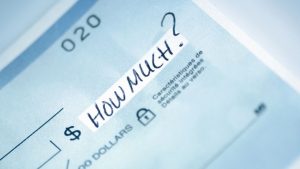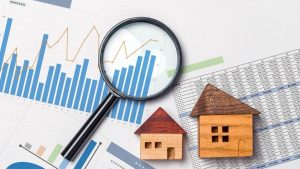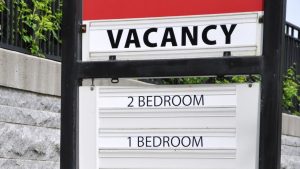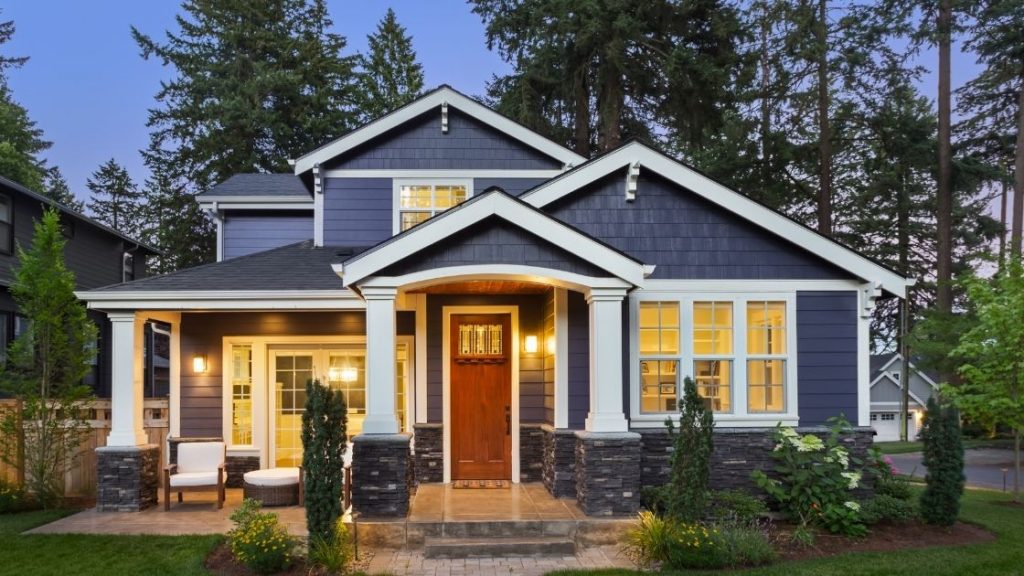You can get rich being a landlord if you buy multiple properties and operate them profitably. There are 4 ways a landlord can make money from rental properties: (i) cash flow; (ii) appreciation; (iii) debt reduction; and (iv) tax breaks.
Add on top of that your ability to use leverage to increase your returns and you have a truly potent wealth building vehicle. In fact, I am not aware of any investment that offers this many ways to make money reliably. It’s why Andrew Carnegie famously said this about real estate investing:
Ninety percent of all millionaires become so through owning real estate. More money has been made in real estate than in all industrial investments combined.
I own nine rental properties currently and each of them operates at a profit. Being a landlord made me my first million, so I can say with complete confidence that rental properties can make you rich.
But it’s not just a matter of buying a random rental property, putting the first tenant that applies into the property, and collecting rent checks. You need to find the right investment properties in the right locations, screen your tenants legally but thoroughly, and manage your properties in an efficient and cost-effective way.
This article will discuss how much money you can make as a landlord and some key tips to become a profitable landlord.
Let’s get into it!
This post may contain affiliate links. If you click on a link and complete a transaction, I may make a small commission at no extra cost to you.
The information contained in this post is for informational purposes only. It is not a recommendation to buy or invest, and it is not financial, investment, legal, or tax advice. You should seek the advice of a qualified professional before making any investment or other decisions relating to the topics covered by this article.
How Much Do Landlords Make?

With the purchase of one $200,000 property, a landlord can make upwards of $12,000 per year if you combine the earnings from cash flow, appreciation, and mortgage paydowns.
Over ten years, that’s $120,000. Of course, with just one property you may not reach millionaire status, but you’ll make a respectable amount over the long term. If you own multiple properties, then obviously, your earnings will be that much higher and becoming rich as a landlord is a real possibility.
Here’s the math showing how I got to $12,000 per property per year. I used the following assumptions:
Purchase Price: $200,000
Mortgage: 15% down ($30,000)
Interest Rate: 3.5% (which seems to be the prevailing rate at the time of this writing)
Appreciation Rate: 3.7% (this was the rate of appreciation for homes during the past twenty years).
Earnings Analysis
Cash Flow: Cash flow is simply income minus expenses. In most cases income is just rent, although you may have application fees, late fees, and other miscellaneous fees that could increase your income from time to time. Expenses are anything that costs you money in relation to your rentals, including your mortgage, property taxes, insurance, HOA fees, repairs, etc.
I have found that the average cash flow per property is between $100 and $200 per month when you have a mortgage in place. I bought many of my properties for around $200,000, so I believe this is a reasonable estimate of of the cash flow you can expect for properties in that price range. For purposes of this example, let’s take the middle of the range and assume cash flow of $150 per month or $1,800 per year.
Appreciation: On a $200,000 property, a 3.7% appreciation rate will equal $7,400 in one year. Now that might not seem like much, but when you couple it with the power of leverage (more on that later), you see some pretty spectacular results.
Debt Paydown: At the time of this writing, mortgage interest rates are around 3.5% (actually a bit lower). If you get a 30 year mortgage with a 3.5% interest rate on a $200,000 house and put 15% down (which is standard on an investment property), you are going to be paying down $267.55 of your mortgage starting on your first payment (it increases slightly each month). So over the course of a year, you will have paid down $3,262.56.
Using these assumptions, the landlord made a total of $12,462.56 in one year. If the landlord had paid all cash for the property ($200,000), the return would be 6.23%. Not bad. But remember that the landlord only put down 15% of the purchase price (or $30,000), so the return of investment (ROI) is 41.54%!
That’s the power of leverage and it’s one of the key reasons why landlords who buy multiple properties can amass wealth over the long term.
Now, as with all of the numbers stated in this article, we are using averages and assumptions. Your actual results may vary.
Is Being a Landlord Profitable?
As the above example shows, being a landlord can be immensely profitable, but those numbers don’t tell the whole story. If you aren’t careful, you can just as easily lose money. You may buy a property in a declining neighborhood, or rent out your property to tenants who don’t pay or who trash your rental. The rent that you get for the property may not be enough to cover your expenses. All of these things can kill your profitability as a landlord.
So how do you become a profitable landlord?
You can be a profitable landlord if you do the following: (i) buy a rental that cash flows; (ii) buy a property in a neighborhood that is on a good trajectory; (iii) fill vacancies with high quality tenants; and (iv) follow the law when managing your properties.
How To Tell If Your Property Will Cash Flow
Before you purchase a rental property, you should be sure that it will cash flow. How to do this? It’s a simple calculation. Find out the expected rent and subtract the expected expenses. If the result is a positive number, you should have cash flow.
How to Calculate Expected Rent
Perhaps the most important part of that calculation is the expected rent. There is no method to perfectly predict expected rent, but a great place to start is with your real estate agent.
Your agent can pull for you “rental comps” which are basically a history of rentals in the area that are similar to your target property. You can get a pretty good sense of the rent that your property will generate based on those comps.
Another option is to go to Zillow’s “Rent” tab and run a search of the property’s ZIP code. The results may include rental listings for properties that are similar to yours in size, bedrooms, etc.
Sites like rent-o-meter can also be a fine source for rental estimates.
Any of these methods (or better yet, using all three in combination) should give you a pretty accurate idea of your expected rent.
How to Calculate Expected Expenses
Your estimated expenses should be pretty easy to calculate.
They are going to include your mortgage payment, property tax, and property insurance, all of which generally get rolled into a single payment that you make to the lender. If you go to Zillow, they can provide an estimate of your expenses for any property you type in. You may also want to build into your expected expenses some money to cover repairs and capital expenditures (like roofs, HVAC systems, etc.).
Once you have the estimated expenses and the projected rent, the rest is easy. Just subtract one from the other to determine if the property will cash flow.
How to Tell If A Neighborhood Is On a Good Trajectory

With the help of your real estate agent, you should figure out what neighborhoods you want to target. If this is your first rental property, you may want to stick to areas near you (all of my properties are within 15 minutes of my house, which really makes everything easier).
Some of the additional factors you should consider are:
- Reputation and overall desirability of the neighborhood (good school districts are a plus)
- Population and jobs are stable or growing
- A robust tenant population exists
One fantastic resource to help you select the right area is Mashvisor. They allow you to search a city and immediately get an overview of the investment potential.
Using their tools, you can:
- Pull average returns for traditional rental investing as well as for Airbnb.
- See how many properties are in that city.
- Find out key information, like average income, home price, Airbnb occupancy rate and the optimal strategy for that neighborhood.
- Run searches on potential properties based on the criteria you provide.
Pretty powerful tool.
If you want to access their services, you can use my promo code AFF15 for a 7-day free trial of Mashvisor in addition to a 15% discount forever on subscriptions to any Mashvisor plan.
How to Fill Vacancies With High Quality Tenants

Fill Your Vacancies Quickly
The first thing you need to do is actually fill the vacancy. Nothing will hurt your profits more dramatically than a prolonged vacancy. Not only do you have no money coming in when your property is not occupied, you are losing money each month because you still have to pay your mortgage and other expenses. It can be a killer.
So, you need to fill vacancies fast. Here are some tips on how to do that:
1. Market your property broadly
- List your rental on sites with a large user base like Apartments.com and Zillow
- Put up a for rent sign
- Place flyers in local venues (universities, local supermarkets, etc.)
- Use word of mouth or any other channel that is available to you to market your property
2. Make your listing as appealing as possible
- Take professional photos (they really make your listing stand out)
- List all of the features and advantages of living in your rental (nearby shops, supermarkets, parks, major roads, public transport, etc.)
- Make sure your rental price is on par with the market (or even slightly below market)
Properly Screen Your Tenants
Once you have some interested parties, you need to screen them properly to make sure they are qualified tenants. I like to make sure they have enough income to pay the rent, that their credit history is decent, and that they have no other serious red flags like recent prior evictions.
Be objective when screening your tenants and make sure that you are following fair housing and other applicable laws . Don’t unfairly discriminate – not only will it get you in hot water legally, it’s just not a good business practice.
For more tips on how to minimize vacancy, check out my article on the topic.
How to Follow the Law When Managing Your Properties
We already touched on legality in the context of tenant screening, but you should also be aware that your state and local laws may have rules that you must follow when managing rental properties.
These can include rules around habitability, maximum occupancy, security deposits, smoke detectors, and much more.
If you need help navigating though these rules, I would consult with a qualified landlord tenant lawyer.
Conclusion
So there you have. Now you know how much landlords can make and some tips of how to become a profitable landlord.
If becoming a landlord sounds interesting to you, check out my article on how to start investing in rental properties. It takes you step by step through the process and provides tons of great tips from my experience as a long-time landlord.

